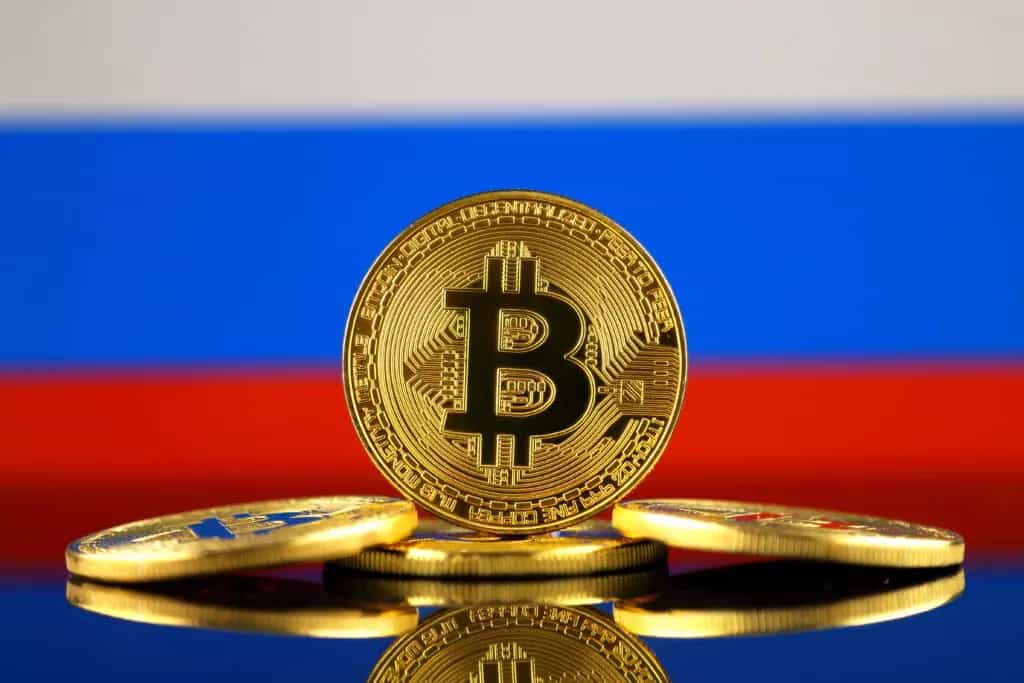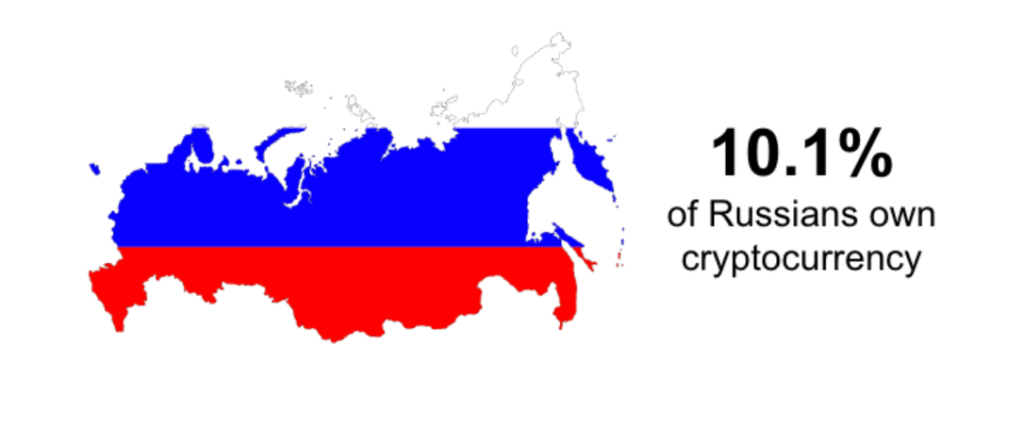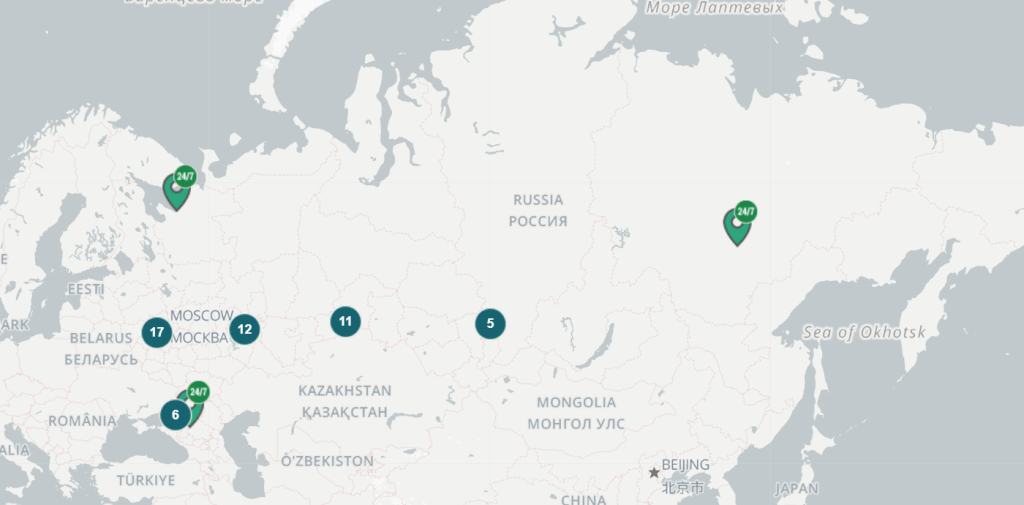As cryptocurrency becomes increasingly popular around the world, Russia is no exception. We will try to take a closer look at crypto regulation in Russia and see what is happening with cryptocurrency in this country.
What is happening with cryptocurrency in Russia now
The Bank of Russia has released a consultation document “Cryptocurrencies: trends, risks and regulation”. According to this article, the amount of cryptocurrency transactions made by Russian citizens reaches $5 billion per year. The Bank of Russia expresses concern about some features of cryptocurrencies, such as:
- High volatility, which can lead to significant losses for investors.
- Massive use of cryptocurrencies may limit the sovereignty of monetary policy Russia, which may lead to some difficulties in the fight against inflation.
- A massive withdrawal of savings from the Russian financial sector may lead to difficulties in financing the real sector of the economy.
- Cryptocurrencies are used for illegal activities, such as money laundering.
However, cryptocurrencies are not the only topic mentioned in the article. Stablecoins are also seen as a potential threat to the Russian economy.
For now, the Bank of Russia proposes the following what needs to be done to control cryptocurrencies in the country:
- Prohibit the use of cryptocurrency as a means of payment for goods and services.
- Prohibit the issuance and circulation of cryptocurrencies and establish the liability of organizations for violating the ban.
- Prohibit financial institutions from investing in cryptocurrencies and organizations associated with the crypto industry.
- Ban cryptocurrency mining in Russia.
This story continued when Russian Ministry of Finance official Ivan Chebeskov responded to the Central Bank’s proposal. He said cryptocurrency should be regulated, not banned.

After publication consultation document, tensions emerged in relations between the Bank of Russia and the Ministry of Finance. They were unable to reach an agreement on the future regulation of cryptocurrency. In February, these two structures unexpectedly agreed on a bill regulating cross-border transactions with cryptocurrency.
Statistics for Russia
According to the Banklesstimes website, which provides statistics on the use of cryptocurrency in Russia, we see that 10.1%, or 14.6 million Russians, own cryptocurrency today. The most popular cryptocurrency is ETH, as this coin was chosen by 32% of citizens. The second place goes to BTC: 30.8% of people keep it in their wallets. Most crypto owners in Russia are quite young - most of them are between 18 and 34 years old.
 < p> Interesting fact: in the Russian Federation, the number of women who own cryptocurrency is greater than men.
< p> Interesting fact: in the Russian Federation, the number of women who own cryptocurrency is greater than men. Looking for Bitcoin ATMs? Currently in Russia there are 54 ATMs that allow you to make transactions with BTC:

Now let's move on to the background of cryptocurrency in Russia and find out what the future of the industry is in this country.
Cryptocurrency in Russia
Russia’s relationship with cryptocurrencies is complicated. There have been periods of love and hate, proposals for bans and attempts to approve. Let's look at the most significant milestones.
- In 2017, Russian President Vladimir Putin met with Ethereum founder Vitalik Buterin to discuss the possibilities of cryptocurrency and blockchain. Then it seemed that all representatives of Russia, including the president, were delighted with the possibility of introducing new technologies into the life of the country and building a digital economy. However, regulation was already mentioned then.
- Shortly after this meeting, the Central Bank called Bitcoin a pyramid scheme, and the president also emphasized several times that there is a possibility that this cryptocurrency could be used for illegal purposes. This meant that for some reason the government had changed its mind and approval was no longer considered.
- The period 2016-2018 is considered the time of the crypto boom. At that time, there were many initiatives that proposed different ways to use blockchain technologies and cryptocurrencies.
- In 2020, cryptocurrencies received legal status, and their use as a means of payment became illegal.
- In January 2021, a law appeared banning the use of digital assets for payments, which definitely complicates the use of crypto.
It is interesting that the Bank of Russia and the Ministry of Finance of Russia have opposing opinions on this matter. The head of the financial policy department, Ivan Chebeskov, said that the Ministry of Finance believes that instead of banning cryptocurrency, Russia should think about ways to regulate it.
There is also no consensus on cryptocurrency mining. Russia takes a large part in the global mining process, but the Bank of Russia is inclined to ban this too. In November 2021, the lower house of representatives of the Duma proposed granting miners the status of entrepreneurs, but this idea was not supported by the Central Bank.
However, the blockchain and crypto industry is not going to stop and continues its development in the Russian Federation , even considering the number of obstacles she faced. The most popular and largest bank in Russia, Sberbank, announced the imminent launch of a decentralized finance platform.
The official launch of the DeFi platform is planned for May 2023, the report says. Sberbank Blockchain Lab Product Director Konstantin Klimenko said: “We have set ourselves a big goal - to make the Russian DeFi ecosystem number one. Our network is currently operating in closed beta testing. From March 1, we will move to the next stage, this will no longer be beta testing, but open testing.”
According to Klimenko, the blockchain platform will be compatible with Ethereum (ETH). Clients of MetaMask wallets will be able to use the system. Konstantin also added that users will also be able to transfer their cryptocurrency from other platforms. He believes that the DeFi system could displace the traditional banking market in the future.
Conclusion
The situation with cryptocurrency in Russia is ambiguous. On the one hand, more and more people are investing their money in the crypto industry. Despite what the government thinks, Russian citizens have long supported cryptocurrency and do so for a variety of reasons. The main one is an attempt to avoid inflation.
Banning cryptocurrency can have different consequences. Undoubtedly, this will stop some people from buying cryptocurrency. But it could also trigger a migration of developers and engineers to more crypto-friendly places. In any case, the final decision has not been made yet, so follow the news on our blog.


